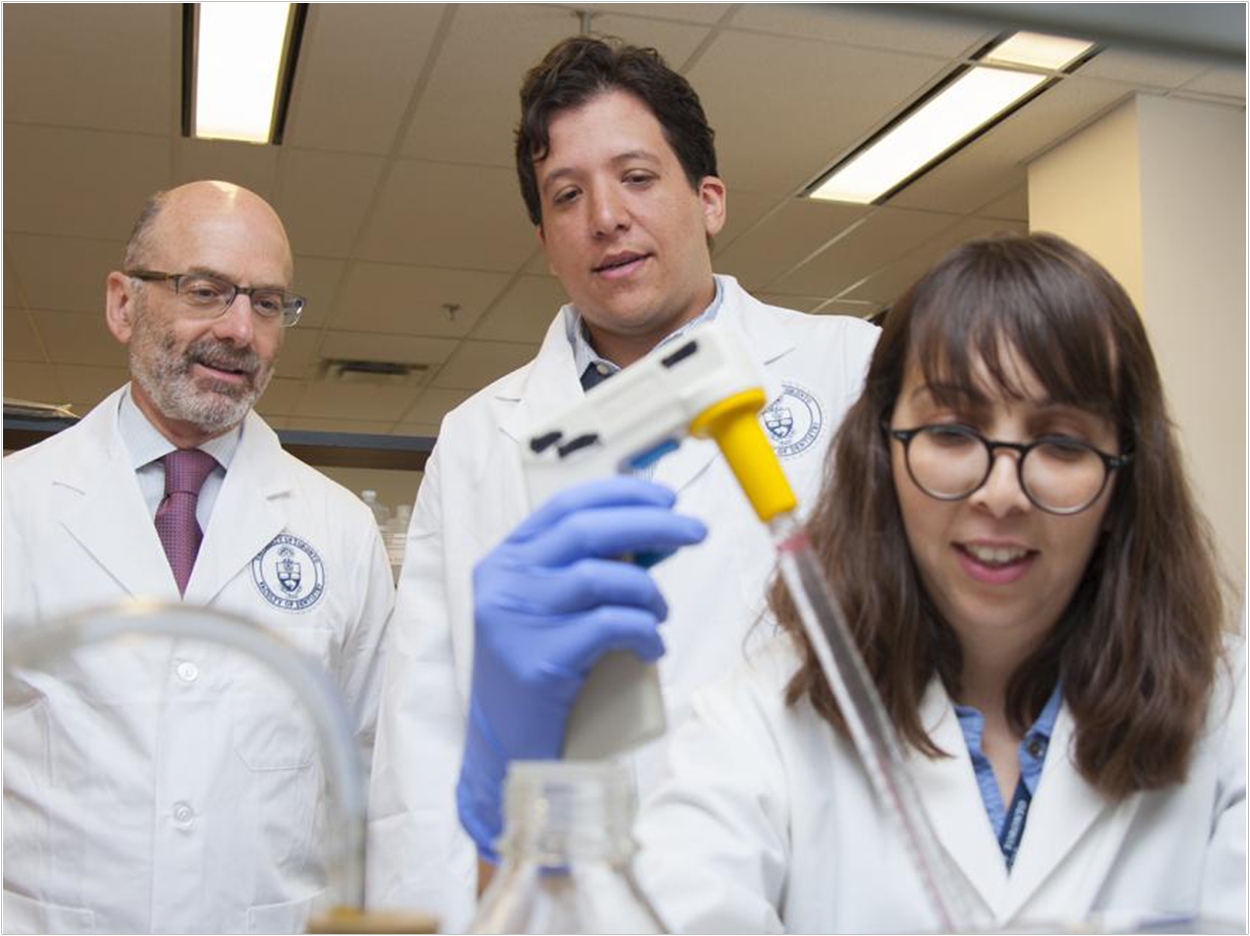
Oral inflammation stimulates oral squamous cell carcinoma (OSCC) invasion, report researchers at the University of Toronto Faculty of Dentistry who examined patients with oral cancer and investigated inflammatory markers in their saliva and tissue samples to determine the molecular mechanisms underlying inflammation-mediated OSCC invasion.
The researchers have already shown that neutrophils, which are common inflammatory cells found in saliva, can increase the invasiveness of cancer cells. In this study, they showed that several inflammatory markers and cells including neutrophils and TCD4 cells are increased in oral cancer patients, as well as the key inflammatory mediator TNFα.
The authors analyzed how TNFα induces significant changes to the cancer cells, leading to increased invasion and the recruitment of more inflammatory cells and ultimately poor disease-free survival.
“We show here that TNFα promotes a pro-inflammatory and pro-invasion phenotype leading to the recruitment and activation of inflammatory cells in a paracrine mechanism,” said researcher Marco Magalhaes, DDS, MS, PhD. “This represents a significant advancement of oral cancer research and will support new treatment approaches to control OSCC invasion and metastasis.”
OSCC represents most oral cancers. Its poor outcomes are attributed to its late detection and the presence of metastasis at diagnosis. For localized disease without metastasis, the five-year survival rate is 80% but drops to 59% and 36% in regional and disseminated disease, respectively.
The survival rate has not improved in the last three decades, emphasizing the need to better understand OSCC pathogenesis to increase patient survival and decrease morbidity, the researchers said, adding that the results demonstrate a novel mechanism by which TNFα stimulates OSCC invasion.
“Based on our results, we show that oral inflammation in cancer patients determine a ‘pro-tumor’ environment that promotes cancer invasion and consequent metastasis,” Magalhaes said. “In combination with our previous findings, we have established a mechanism by which oral cancer modulates oral inflammation, leading to worse prognosis, and this is dependent on the key inflammatory mediator TNFα.”
Now, Magalhaes said, they can better understand how to create strategies to promote inflammation that is beneficial for patients—the “anti-tumor” inflammation. There is a shift already, Magalhaes said.
“Oral cancer is a perfect example of a cancer that is commonly associated significant inflammation, and unlike other tumors, this may be a target for new therapies,” he said.
The study, “Oral Inflammation Promotes Oral Squamous Cell Carcinoma Invasion,” was published by Oncotarget.
Related Articles
Biomarker Reliability Investigated for Salivary Oral Cancer Tests
When an Oral Cancer Diagnosis Hits Home
Check Your Mouth to Stop Oral Cancer












